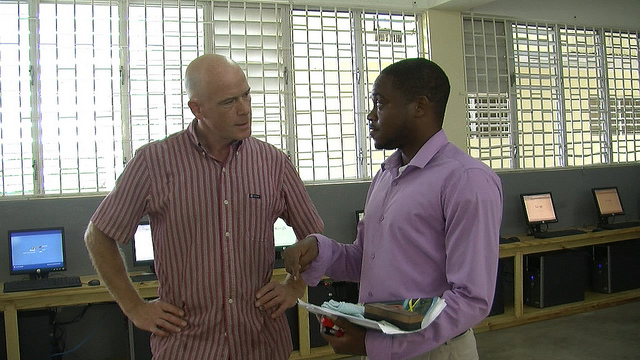Merit Pay in K-12 Education: What’s the Big Debate Over??

One hotly contested issue is compensating teachers through merit pay. The philosophy behind merit pay is to reward teachers who produce better results in the classroom.
Sounds reasonable, right? Unfortunately, the issue is more complex than that. Districts with varying characteristics use merit pay for a number of reasons, including rewarding teachers for certification by the National Board for Professional Teaching Standards (NBPTS), teaching excellence, and recruiting and retaining teachers. And it’s important for you to know that the NEA adamantly opposes merit pay. Before you read more about merit pay, decide whether you agree, disagree, or are neutral about it. Jot down the reasons for your view. Now, let’s take a look at the arguments for and against merit pay.
Why should we use merit pay?
- Americans value hard work and efficiency. Indeed, our entire capitalist system depends on rewarding those who work hard and produce results. Many people cite “the pay for results” explanation as the primary reason for their support of merit pay. In most professions, employees are offered bonuses and salary increases when they do exceptional work. Teaching should have similar rewards. Consider the scenario where a hardworking, decent teacher earns the same salary as a lazy, incompetent teacher.
- Providing incentives to teachers will encourage them to teach better and work harder. Without the merit pay system, teachers have no monetary reasons to teach more effectively and work to produce better results. Providing extra cash to educators would most likely increase the motivation of many teachers to increase the quality of their teaching.
- Merit pay programs will help recruit and retain high-quality teachers. Merit pay may encourage high-quality teachers to enter and remain in the profession. It is often upsetting to extraordinary teachers when they see their less-dedicated colleagues make equivalent salaries. Merit pay may help end the stream of educators leaving the profession because it’s not rewarding enough for their exceptional talents and diligence.
- For those who believe that teachers are underpaid, merit pay will help to address this issue. As mentioned earlier, teaching is not an exceptionally well-paid profession. Both educators and non-educators find teacher salaries lacking compared to salaries in other professions. Merit pay would be one big step toward alleviating this problem. What better way is there to reward those who are most deserving?
- America currently has a shortage of teachers. By implementing merit pay, teaching may become attractive enough to draw in fresh college graduates who may have been considering a teaching career. Merit pay would make teaching a viable career option for them, rather than an act of personal sacrifice.
- The desperate condition of the American education system requires the consideration of all possibilities. Traditional methods of running schools and motivating teachers have resulted in limited success. In a time of crisis, we need to examine all valid ideas as a possible solution.
Why should we abandon the idea of merit pay?
- When merit pay is based on student performance outcomes on standardized tests, teachers tend to focus on teaching to the test rather than their passion for teaching students. When test performance is the primary criterion for merit pay, the teachers’ primary focus becomes increasing student test scores, rather than teaching individual students. Additionally, standardized tests alone do not provide the best measure of a teacher’s performance.
- Competition may arise among teachers, leading to a decline in cooperation and good will. In a non-merit pay system, teachers typically work as a team and help each other to arrive at good solutions. Under a merit pay system, teachers may develop a habit of looking out for themselves, resulting in a decline in cooperation. Ultimately, students will suffer and receive a lower-quality education.
- Success is difficult, if not impossible, to define and measure. Many attempts to define success have failed miserably in the past. A good merit pay system will require a well-defined set of goals and outcomes for teachers to reach. Unfortunately, due to the complex nature of schools and students, defining such a set of goals will be nearly impossible.
- Merit pay systems will encourage dishonesty and corruption. Teachers and administrators will be tempted to engage in dishonesty to receive more money. Merit pay systems create environments where legal and moral issues become problematic. An administrator’s favoritism toward some teachers over others could lead to an increase in lawsuits. Ultimately, our students will suffer from the corruption that a merit pay system will create.
- Pay teachers more, period. Many opponents to the merit pay system propose increasing all teachers’ salaries. Improved salaries will attract and retain talented teachers.
Disagreements aside—advocates on both sides of the fence agree that teachers should be paid more.
What do you think of merit pay? Is it better to keep it or leave it?





